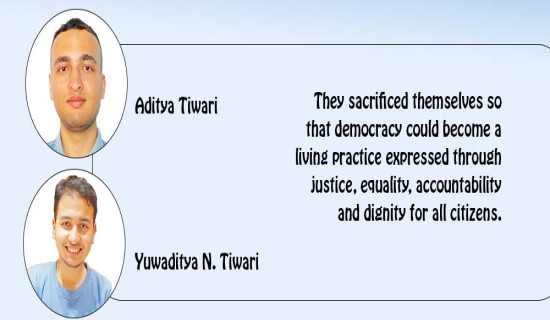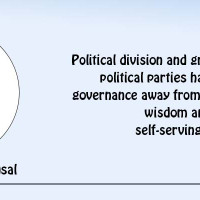- Friday, 30 January 2026
Ethical Dilemma Of Triage In Hospital
Tertiary care centres in general and specialty trauma centres in particular faces tremendous pressure during times of crisis such as earthquakes, pandemic, and accidents involving masses. In times of crisis, hospitals often face overwhelming situations where resources are scarce, the number of patients exceeds the available capacity, and healthcare systems face immense pressure to allocate limited resources efficiently. In such circumstances, the concept of triage becomes crucial, as it involves making difficult decisions about who receives medical care and resources first.
Triage is a process that prioritises patients based on the severity of their condition and the likelihood of survival. It is an essential tool to ensure that limited resources are allocated efficiently, maximising the number of lives saved. However, the principle of triage raises ethical concerns as it requires healthcare professionals to make life-or-death decisions, potentially denying care to some patients.
Ethical considerations
One of the primary ethical considerations in triage is the principle of fairness. Healthcare professionals must strive to distribute resources equitably, ensuring that no patient is socially discriminated against by age, gender, race, or social status. However, achieving fairness in triage is of paramount importance, as it often involves making subjective judgments about a patient's prognosis and potential for recovery and/or survival particularly in countries like ours.
The ethical dilemma also arises when healthcare professionals are required to prioritise patients who have a higher chance of survival over those with a lower chance. This decision can be emotionally distressing for healthcare providers, as they may feel responsible for the potential loss of life. Balancing the duty to save as many lives as possible with the emotional toll on healthcare professionals is a complex challenge.
Additionally, triage decisions can also impact vulnerable populations disproportionately. Patients with pre-existing conditions or disabilities may be deemed less likely to survive, leading to potential discrimination and unequal access to care. Healthcare professionals must remain vigilant and ensure that biases do not influence their decision-making process. Health care professionals, therefore, should follow triage protocol without bias.
Triage, the process of prioritising patients based on the severity of their condition, is a critical aspect of healthcare delivery in hospitals. As medical facilities face increasing patient loads and limited resources, the need for an effective triage system becomes paramount and is more important for hospitals in developing economies where these facilities are often overstretched.
Implementing a well-developed triage system can significantly improve patient outcomes. By promptly identifying and prioritising patients with life-threatening conditions, healthcare professionals can ensure that critical interventions are provided on time. This approach minimises the risk of complications, reduces mortality rates, and enhances overall patient care. By removing subjective factors and relying on objective criteria, such as the severity of the condition, the protocol minimises bias and discrimination.
Hospitals often face resource constraints, including limited beds, medical equipment, and staff. Triage helps optimise resource allocation by ensuring that the most critical patients receive immediate attention. By categorising patients based on their urgency, hospitals can allocate resources efficiently, reducing waiting times and enhancing the quality of care for all patients.
Emergency departments are often overwhelmed with patients seeking urgent medical attention. Developing an effective triage system can streamline the workflow in these departments, allowing healthcare professionals to prioritise patients based on their needs. This approach helps reduce overcrowding, minimises patient wait times, and ensures that those in critical condition receive immediate attention.
A well-implemented triage system can also enhance staff efficiency. By accurately assessing patient conditions and assigning appropriate priorities, healthcare providers can allocate their time and expertise more effectively. This not only improves patient care but also reduces stress and burnout among medical professionals, leading to a more sustainable healthcare workforce.
During a crisis, resources like hospital beds, medical equipment, and personnel become scarce. Triage protocol plays a crucial role in efficiently allocating these limited resources. By prioritising patients based on their immediate needs, healthcare providers can make the most effective use of available resources, maximising their impact and saving more lives.
Transparent and effective communication is vital during triage situations. Patients and their families must be informed about the triage process, the criteria used for decision-making, and the potential outcomes. Open dialogue can help alleviate anxiety and build trust, even in the face of difficult decisions.
Challenges
While developing triage systems in hospitals is crucial, it is not without challenges. Often neglected issue is the involvement of representatives from the general public. Designing and implementing a comprehensive triage system requires careful planning, training, and ongoing evaluation. Additionally, ethical considerations, such as ensuring fairness and avoiding bias, must be addressed to maintain patient trust and confidence in the healthcare system.
Triage systems require effective communication and collaboration among healthcare professionals. Developing triage protocols encourages interdisciplinary teamwork, ensuring that all relevant medical personnel such as physicians, pharmacists, and nurses are involved in the decision-making process. This collaborative approach fosters better communication, and coordination, and ultimately improves patient care. Triage in hospital settings is an ethical tightrope that healthcare professionals must navigate during times of crisis. Triage protocol is an essential tool in crises, enabling healthcare providers to make difficult decisions and save lives.
The principle of triage, while necessary, raises complex ethical considerations regarding fairness, the value of life, and potential discrimination. Healthcare professionals must approach triage with empathy, transparency, and a commitment to equitable distribution of resources. Ultimately, society must engage in ongoing discussions and establish clear guidelines to ensure that triage decisions are made ethically and with the utmost respect for human life.
(Dr. Lohani is the executive director at Health Concern, Nepal. lohanis@gmail.com)

















